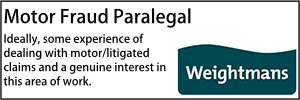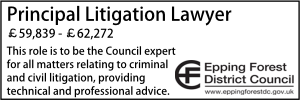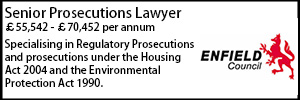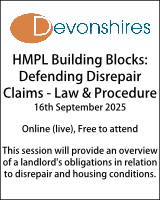Private hire vehicles and contracting
The Supreme Court has handed down a key ruling on the correct interpretation of the statutory regime regulating the provision of private hire vehicles. Gerald Gouriet KC and Michael Feeney analyse the judgment.
- Details
The Uber v Sefton litigation, which began four years ago, has finally reached the end of the appellate road. In D.E.L.T.A. Merseyside Limited and Veezu Holdings Limited v Uber Britannia Limited [2025] UKSC 31 the Supreme Court has dismissed Uber’s appeal[1] and upheld the decision of the Court of Appeal [2], which was to discharge a declaration made by the High Court[3] (Foster J) that in order to operate lawfully under the Local Government (Miscellaneous Provisions) Act 1976 (“the 1976 Act”) a licensed operator who accepts a booking for a private hire vehicle (“PHV”) is required to enter into a contractual obligation with the passenger to provide the journey the subject of the booking.
It is therefore settled, once and for all, that the 1976 Act imposes no such requirement. A licensed operator may, of course, enter into a contract with whoever it is that books a PHV, but it is not required to do so. A great many operators do not, and leave the contract of hire (if any) to be made between the passenger and the driver who picks them up. Lord Briggs, with whom the other four Justices agreed, affirmed that such an operating model is of long-standing and perfectly lawful.
It has been a strange journey from the High Court to the Supreme Court. In taxi terms it is as though, having entered the vehicle and been driven around the block a few times before being set down where we were picked up, we are told by the driver that we have been at our destination all along. The decision of the Supreme Court, albeit more cogently expressed, is what we have been saying since this litigation was first launched.
Background
The saga began in December 2021, when the Divisional Court made a declaration[4] regarding the London PHV trade (“the London declaration”) in identical terms to that made two years later by Foster J, save that the governing legislation was the Private Hire Vehicles (London) Act 1998 (“the 1998 Act”). Although the London declaration does not apply to bookings accepted by out-of-town operators licensed under the 1976 Act, from mid-March 2022 Uber, which operates through different companies nation-wide, changed its business models so that they conform with the London declaration, both within and outside London, taking the position that the 1998 Act is in essentially the same terms as the 1976 Act and each should therefore be construed similarly.
Provincial operators, however, did not follow suit in changing their business models – under which they had been operating for many decades before Uber even existed, or could have been dreamed of by the most far-seeing visionary. Fully aware of Uber’s position, the out-of-town trade nonetheless stood its ground; so later that same year (2022) Uber applied to the High Court for a declaration that would impose on all provincial operators a legal requirement in essentially the same terms as the London declaration. Put bluntly (as did Lord Briggs in his judgment), Uber made the application in effect to compel all PHV operators outside London to adopt the same business model as its own – which by no means would be to every rival operator’s commercial advantage.
The following years were something of a roller-coaster. In 2023, Uber succeeded in persuading Mrs Justice Foster to make the declaration it sought. (Her decision was handed down nine months after the hearing in the High Court.) In 2024, however, success eluded Uber when two large provincial operators (D.E.L.T.A. Merseyside Limited and Veezu Holdings Limited) appealed Foster J’s decision and the Court of Appeal discharged the declaration she had made. Uber then appealed to the Supreme Court, curiously not asking the court to re-instate the High Court declaration but tendering a differently worded one in its place; and in July 2025, the Supreme Court dismissed Uber’s appeal, neither re-instating the original declaration nor making the alternative one that Uber had suggested.
The decision
The bedrock upon which the Supreme Court dismissed Uber’s appeal comprises two principal findings, which Lord Biggs summarised as follows –
- “There is nothing expressly provided in the 1976 Act which can be interpreted as imposing, or even supporting, the prohibition for which [Uber] contends.”
- “There is nothing in the Act or in its purposes from which such a prohibition could be implied.”
He said that “such a restriction upon what would otherwise be the freedom of operators, drivers and passengers to choose how and when (and between whom) to contract for the hire of a PHV, would require cogent justification and clear expression in the statutory language.” His judgment makes it clear that the Supreme Court found neither.
Furthermore, section 56(1) of the 1976 Act deems every contract for the hire of a PHV to be made with the operator who accepted the booking for that vehicle. In giving the judgment of the Court, Lord Briggs said: “Section 56(1), is wholly inimical to [Uber’s] construction, and would be otiose if [Uber] were correct.”
The statutory purpose of promoting public safety was heavily relied on by Uber at all stages of this litigation and was a key factor in the judgment of Foster J in the High Court. But the Supreme Court was not impressed. Lord Briggs said it was “by no means clear” that the restriction on operators for which Uber contended “better serves the interests of passengers, drivers or operators overall, let alone any more general public safety purpose… the Act plainly seeks to achieve public safety by other means through licensing.”
Neither was Lord Briggs persuaded by Uber’s submission that the definition of “operate” (i.e. to make provision in the course of business for the invitation or acceptance of PHV bookings), read with the definition of “PHV” (i.e. a motor vehicle which is provided for hire with the services of a driver for the purpose of carrying passengers), “connotes by implication that the acceptance of a booking means, and means only, the acceptance of a contractual obligation to fulfil the booking.” In a withering rejection of that submission, the judge said: “In my view that is little better than pure assertion.”
This appeal is also important for underscoring the distinction between the booking of a vehicle and the contract for the hire of it. The Court of Appeal had considered section 56(1) of the 1976 Act and observed that “the statutory language differentiates between accepting the booking on the one hand and making a contract of hire on the other.” That distinction is implicit in the Supreme Court’s observation that section 56(1) “manifestly does not impose a regulatory requirement upon the operator to accept bookings only by entering as principal into a contract of hire.”
Conclusion
In the TfL case[5], the Divisional Court made a declaration affecting the London PHV trade which the Supreme Court has rejected as inapplicable in the provinces, where the trade is regulated under different legislation. In the current appeal, Lord Briggs pointedly said that nothing in his judgment was “intended to express any view about the correctness or otherwise of the decision of the Divisional Court in the TFL case, one way or the other.”
We are left, then, with a private hire licensing regime for London which is materially different from the regime applying outside London. Uber and others seeking to intervene in this appeal had complained vociferously about the “lack of alignment” between the two contiguous areas. But their complaint fails to recognise that the 1976 Act was adoptive: section 45 provides that a district council may resolve that Part II is to apply in its area. It was in the contemplation of Parliament, therefore, that different regulatory regimes of different district councils (those that had adopted Part II and those that had not) could co-exist in different parts of the country – even if adjacent to one another.
If alignment is desirable, it will be for Parliament to achieve it: something it did not seem concerned to do when it passed the 1998 Act.
Gerald Gouriet KC and Michael Feeney are barristers at Francis Taylor Building.
[1] D.E.L.T.A. Merseyside Ltd and anr. (Respondents) v Uber Britannia Limited (Appellant) [2025] UKSC 31
[2] D.E.L.T.A. Merseyside Limited & Veezu Holdings Limited v Uber Britannia Limited [2024] EWCA Civ 802
[3] Uber Britannia Ltd v Sefton Metropolitan borough Council [2023] EWHC 1975 (KB)
[4] Uber London Ltd Lid) v Transport for London and others [2021] EWHC 3290 (Admin): “the TfL case”
[5] Uber London Ltd Lid) v Transport for London and others [2021] EWHC 3290 (Admin)
Trust Solicitor (Employment & Contract Law)
Trust Solicitor (Public & Healthcare Law)
Locums
Poll



























